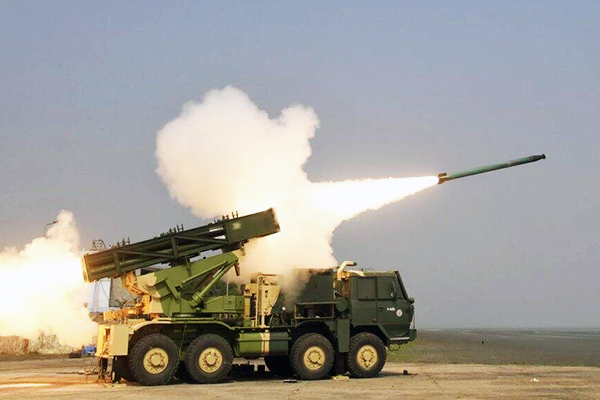In a milestone for the private sector, the Army has conducted successful user trials for indigenously developed and manufactured rockets that will progressively replace imports from Russia and could be offered for exports to friendly nations as well.
Enhanced range Pinaka rockets were test-fired at Balasore and Pokhran over the past few weeks, with munitions manufactured by Nagpur-based Economic Explosives Limited (EEL) meeting all user requirements. Rockets made by state- owned Munitions India Limited (MIL) too passed the trials, sources said.
The Army is now likely to go ahead with the procurement of these indigenous rockets, with the order being divided between EEL and MIL. The enhanced Pinakas have a range of over 45 km, up from legacy rockets that can strike targets at a range of 37 km. Sources said that over 120 rockets were test fired by the army to validate all technical requirements.
They have been developed by the Defence Research and Development Organisation (DRDO), with technology being shared with the industry. This is the first time that rockets produced by the private sector have been accepted for service, since defence manufacturing has been opened to non-governmental players. The army has a large requirement for rockets of this class, which is pegged at over 1,000 units annually.
“The project showcases that the private sector can deliver when it comes to the Atmanirbhar Bharat vision. This has been possible with the continuous guidance of DRDO and hand-holding by the Army,” Satyanarayan Nuwal, EEL Chairman told ET.
In the past, munitions of this class have either been imported or have been manufactured by the public sector, which could never completely meet annual requirements of the armed forces. As reported, the armed forces have been looking at creating alternate sources for munitions to reduce dependency on state owned units that have had a mixed track record. Industry estimates peg that privately manufactured munitions of different varieties be significantly cheaper than fixed pricing offered by state owned entities.











